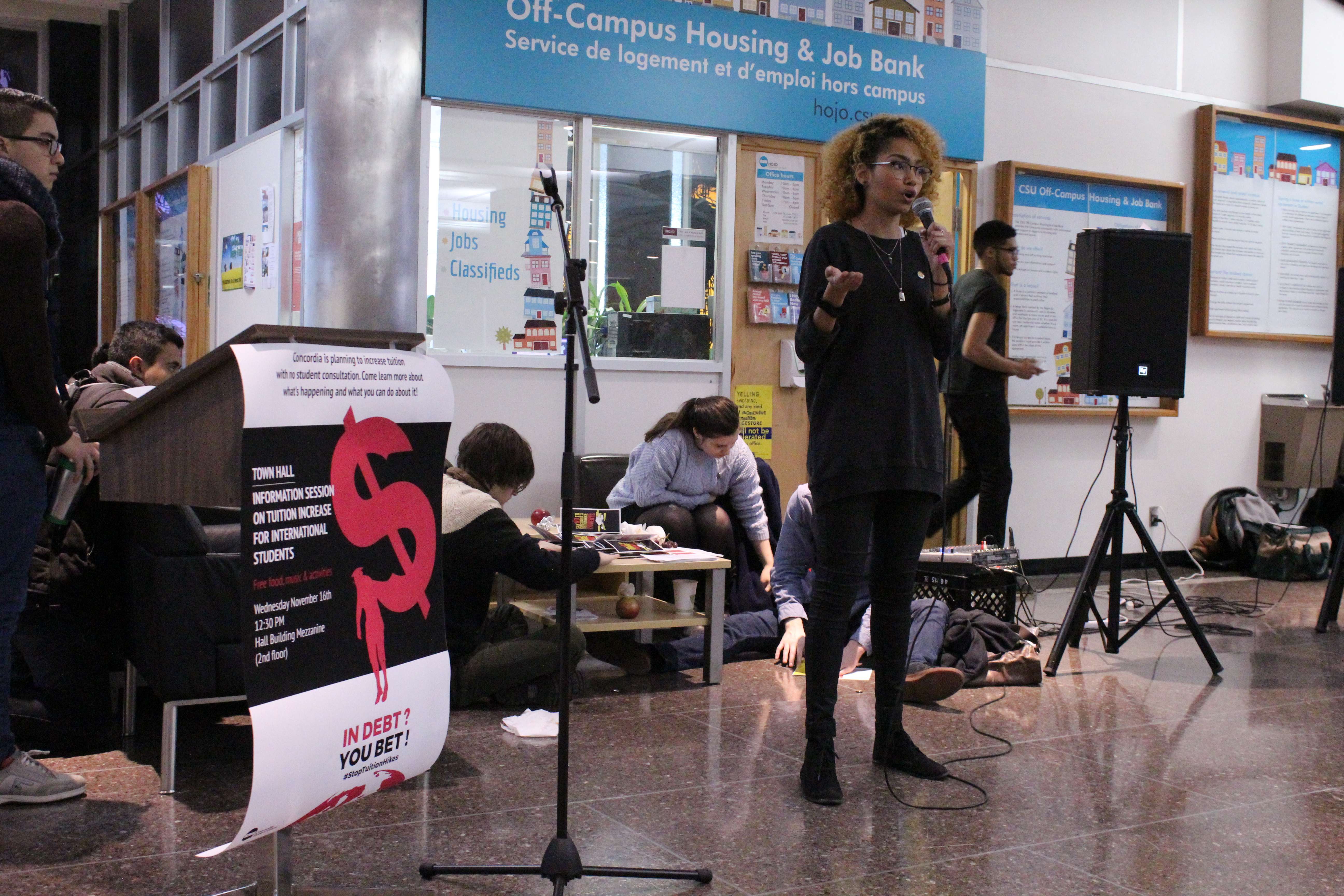The meeting discussed issues surrounding the hikes, including academic freedom and barriers for low-income students
The Concordia Student Union (CSU) held a town hall meeting to address the proposed tuition hikes for international students on Nov. 17 in the Hall building. The meeting featured speakers from the CSU, the Graduate Students’ Association (GSA) and the Association for the Voice of Education (AVEQ), as well as students who wished to voice their opinion on the subject.
The CSU was firm in its decision to oppose the proposed hikes and called for the university’s administration to “uphold a minimum standard of transparency in its decisions which will have a direct financial impact on its students,” as originally stated in an open letter on the CSU website.
The town hall meeting attracted dozens of students and the CSU distributed stickers, buttons and pamphlets containing basic information about the tuition hikes. One of the speakers, Aloyse Muller, the CSU’s external affairs and mobilization coordinator, urged students to sign a petition in opposition of the tuition increase.
Muller said the hikes are a “grave concern” and “the Concordia administration has displayed no transparency whatsoever in the matter.” Like many of the speakers, he discussed many aspects of not only the tuition hike proposal, but also Quebec’s decision in 2014 to completely deregulate certain programs for international students, including science, business, engineering and computer science.
He pointed out the university has yet to release official figures regarding the amount by which tuition will increase and said the proposed cohort pricing system poses a threat to academic freedom.
The cohort system guarantees international students will be charged the same tuition price throughout the entirety of their program at Concordia, as a university spokesperson, Chris Mota, told The Concordian last week. However, the university has not disclosed whether students will be subject to varying tuition fees if they transfer programs or require extra time to finish their degree.
The school has also not explained what would happen if students in regulated programs took elective courses from deregulated programs, said Muller.
Muller said a common argument is international students’ education should not be subsidized or regulated because they do not contribute to Quebec’s economy through taxes—but he said it is a misconception.
“This is a common myth,” Muller said. “International students pay GST, HST and income taxes. They bring money into the economy.”
Pamphlets handed out at the town hall meeting stated 52 per cent of international students stay in Quebec for more than three years after graduating, paying income taxes and thus strengthening the Quebec economy. For this reason, among others, the CSU believes international tuition should remain regulated by the provincial government.
The organization demanded the university release a comprehensive, program-based breakdown of all fees on its website, release detailed information regarding the cohort pricing system, freeze all tuition hikes being accelerated for approval and to engage more transparently with the student body.
